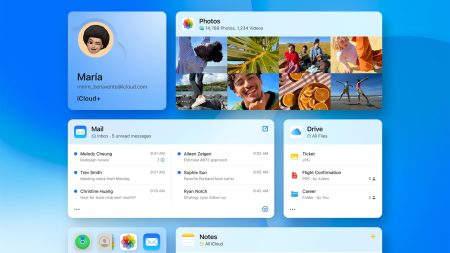Some internet users in a few states in the US are experiencing more challenges accessing certain parts of the internet anonymously. Several states, such as Texas, have passed laws requiring adult websites like Pornhub to confirm the ages of their users to prevent minors from accessing inappropriate material.Other states, including Louisiana, have proposed laws to restrict underage access to social media over concerns about psychological harm. Texas and LouisianaHowever, this means that all users must now verify their age, even those who were previously able to browse privately. FloridaSome critics worry that conservative lawmakers could interpret the laws too broadly and restrict access to content from LGBTQ+ and marginalized groups, affecting teens who rely on online support. Experts suggest that internet users in these states are increasingly turning to Virtual Private Networks (VPNs) to bypass these restrictions. Top VPN provider Top10 VPN claims demand for VPN services spiked by 275% on the same day that Pornhub blocked access in Texas. Similarly, ExpressVPN reported increased web traffic on the day online age verification laws took effect in several states.The increased demand for VPNs suggests that users are using them to access blocked content.
VPNs, which have been around since the mid 1990s, create a secure pathway for user data and can make it seem like their device is in a different location. They are commonly used to access restricted shows and blacked out sports events, as well as to add extra security to private communications. Additionally, VPNs have long been utilized by whistleblowers, journalists, and activists worldwide to protect their online anonymity. A VPN is a useful tool for getting around internet censorship because it lets users access restricted content using an IP address from a different location.Andre Slonopas, the Cybersecurity Department Chair at American Public University and American Military University, believes that VPN providers help internet users stay anonymous and navigate different parts of the internet.
Andre Slonopas said that this is an uncommon chance to listen to different ideas, learn about worldviews, and connect with people on a deeper level. PopSci While VPNs are often used to bypass content restrictions in other countries, Samir Jain, the Vice President of Policy at Center for Democracy and Technology, says that Americans using VPNs to bypass domestic content restrictions is a new trend. signed onto an amicus’s briefcalling on a court to block the Texas law, said he wasn’t surprised users from affected areas states appeared to be seeking out VPNs. VPNs Samir Jain from the Center for Democracy and Technology mentioned that if people can no longer access information anonymously, it violates their First Amendment rights. PopSci Samir Jain from the Center for Democracy and Technology stated that providing a government ID eliminates anonymity and infringes on First Amendment rights related to expressing oneself.
Lauren Hendry Parsons from ExpressVPN emphasized a similar viewpoint. PopSci. Lauren Hendry Parsons from ExpressVPN mentioned that despite legislators restricting access to services like porn, citizens still find ways to access it, suggesting a need for a middle ground that relies on third-party cooperation instead of limiting consumer rights. There is absolutely a middle ground to be found that leans on third-party cooperation instead of limiting consumer rights..
How are platforms responding to the new laws?
As of writing, seven mostly Republican-led stateshave passed some form of legislation relying on age-verification to prevent minors from accessing pornographic material. Nearly all of these so-called “age-gating” bills are copy-cat versions of a
pioneering Louisiana legislation
, which passed in 2022 and took effect early last year.
the Louisiana bill inspired at least 17 copycat bills, a handful of which are on their way to becoming laws. In Texas, sites found in violation of its law PopSci.
could face penalties of up to $10,000 per day Some adult content sites like Pornhub have chosen to block IP addresses from states with these new laws to avoid breaking them. Internet users in Texas trying to access the world’s largest provider of online adult video content were instead greeted with a note from Pornhub explaining its opposition to the state’s law. Pornhub has also restricted access to users from several other states
with similar age verification laws. According to experts, the aim is to avoid penalties. PopSciplatforms also disagree with the laws because they do not want to be accountable for gathering and keeping large amounts of sensitive users’ data that could be a tempting target for cybercriminals.
“Age verification systems gather a large amount of data, not just the personal information from each ID but also a record of each and every authentication made—basically any site you access that features adult content,” Hendry Parsons said. “Combined with the data profiling social media companies create about their users, this treasure trove of personal information is a perfect target for bad actors.”
Increasing VPN use could attract new lawmaker scrutiny PopSci. “US internet users are supposedly using VPNs to access non-porn related material as well. College students around the country are
reportedly already using VPNs
to bypass efforts from some universities to prohibit TikTok on campus networks. In Montana, where lawmakers passed a first-of-its kind statewide TikTok ban, creators have been preparing to similarly use the technology to stay connected to their followers. Lawmakers interested in restricting popular online content of various kinds will inevitably find themselves running into a VPN service willing to offer users an escape tunnel. But a continued increase in VPN to access blocked risks inviting unintended consequences. Internet users appearing to use VPNs to blatantly go against new legislation could encourage lawmakers to clamp down on the technology. Some of the anti-porn laws, like the one enacted in Utah , already possess language explicitly prohibiting online platforms from letting minors “change or bypass restrictions on access.” Digital rights activists fear other recently proposed legislation aimed at limiting US user access to foreign apps may include provisions in it that wouldcriminalize the use of VPNs The Verge estimates Jain, from the Center for Democracy and Technology, acknowledged those concerns but said new laws banning criminalizing or restricting VPNs could do more harm than good and may face constitutional legal challenges. As for the new wave of laws appearing to fuel the rise in American VPN adoption, Jain said debates over one of those laws could eventually make its way up to the Supreme Court. “There are a lot of legitimate reasons to use VPNs to protect your privacy and anonymity,” Jain said..
New internet laws requiring age verification for porn and social media may be contributing to a surge in VPN adoption, experts say. restricted access to users from half a dozen other states with similar age verification laws. In addition to wanting to steer clear of penalties, experts told PopSci platforms also oppose the laws because they don’t want to be responsible for collecting and maintaining torrents of sensitive users’ data that could pose a ripe target for cybercriminals.
“Age verification systems collect a huge amount of data, not only the personal information from each ID but also a record of each and every authentication made—essentially any site you access that features adult content,” Hendry Parsons said. “Combined with the data profiling social media companies create about their users, this treasure trove of personal information is a perfect target for bad actors.”
Rising VPN use could attract new lawmaker scrutiny
US internet users are reportedly using VPNs to access non-porn related material as well. College students around the country are reportedly already using VPNs to get around efforts from some universities to ban TikTok on campus networks. In Montana, where lawmakers passed a first-of-its kind statewide TikTok ban, creators have been preparing to similarly use the technology to stay connected to their followers. Lawmakers interested in restricting popular online content of various kinds will inevitably find themselves running into a VPN service willing to offer users an escape tunnel.
But a continued uptick in VPN to access blocked risks inviting unintended consequences. Internet users appearing to use VPNs to blatantly run afoul of new legislation could incentivize lawmakers to clamp down on the technology. Some of the anti-porn laws, like the one enacted in Utah, already possess language explicitly prohibiting online platforms from letting minors “change or bypass restrictions on access.” Digital rights activists fear other recently proposed legislation aimed at limiting US user access to foreign apps may include provisions in it that would criminalize the use of VPNs.
Jain, from the Center for Democracy and Technology, acknowledged those concerns but said new laws banning criminalizing or restricting VPNs could do more harm than good and may face constitutional legal challenges. As for the new wave of laws appearing to fuel the rise in American VPN adoption, Jain said debates over one of those laws could eventually make its way up to the Supreme Court.
“There are a lot of legitimate reasons to use VPNs to protect your privacy and anonymity,” Jain said.









